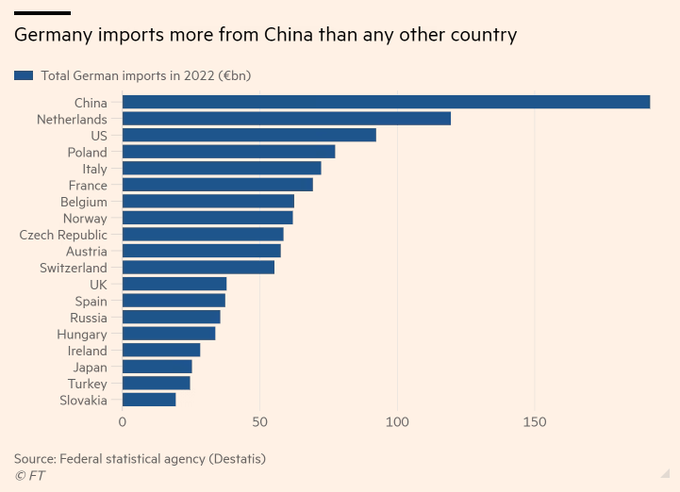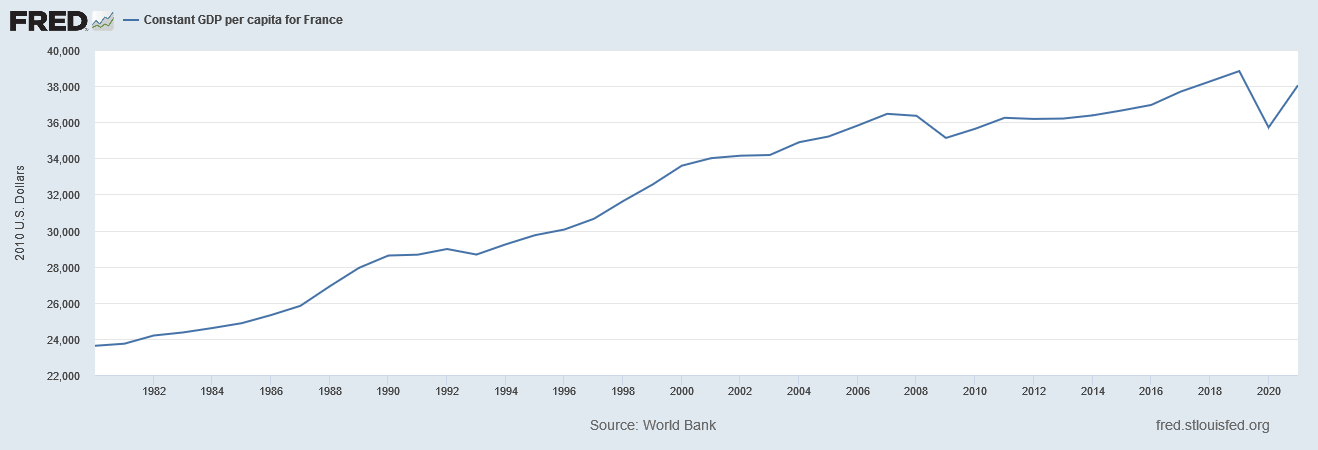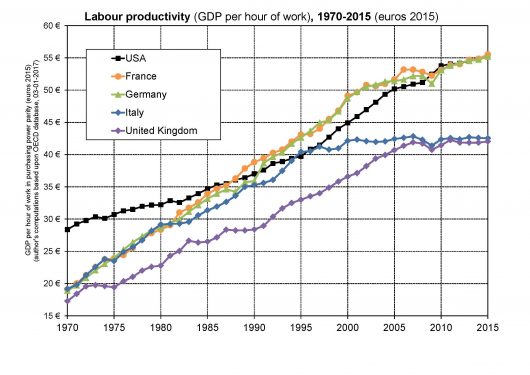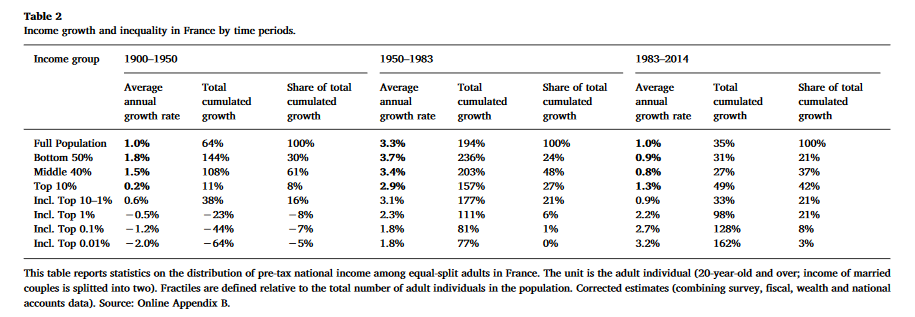Multiple industries. Germany, much like the US, but even more so, let China pick up, among other things, much of the tool making industry, especially those related to auto manufacture.

Ouch.
When you consider this is an absolute terms and not relative, it’s even worse.
This comes on top of anti-Russia sanctions and the sabotage of the Nord Stream pipelines cutting off Germany’s access to cheap energy.
Germany is a relatively small country without a lot of natural resources. To be wealthy it needs to produce high value goods, and to do that it needs inexpensive inputs for its industries, or it needs to have much higher industrial productivity than everyone else.
Outsourcing so much of the supply chain for its manufacturers was an understandable mistake: it made those inputs cheaper.
But if you’re a small country without a lot of resources, you have to keep your supply chains and trading relationships stable. German leaders at the start of the Ukraine war expressed the most doubts about massive sanctions and they were right.
Germany is, as predicted at the time, in real trouble. Their model had flaws, and was a mean one, impoverishing and de-industrializing other EU nations, so there’s a certain irony to EU consensus Russia policy now screwing them over, but at this point if Germany goes down it’ll take the entire EU’s economy with it.
Germany cannot afford to follow the US into a cold trade war with China.
Moreover, this is a demonstration of something simple: what is good for Western EU countries and what most Eastern EU countries want (anti-Russia policies and NATO expansion) are two different things. Germany needs good relations with cheap resource suppliers and the only practical one was Russia.
It’s all very well to say, as many have, that this is the price of standing up for “freedom”, but if Germany goes down, so does the EU.
Likewise, what is “good” for the US, is not good for most European countries, and especially not good for Germany. (Ironically, Macron is the only major EU leader to be honest about this.)
The EU, if it continues on this course, will be reduced to an even weaker American satrapy than it was is the cold war period, and one with a lot worse living conditions.
China’s moving up the value chain. Sanctions against China, rather than slowing this down are speeding it up. Correct industrial policy would have been to negotiate with China about what industries or segments of industry each country is going to specialize in.
Incorrect policy is to have a cold war against both your cheapest energy supplier and the country that is now the world’s manufacturing floor.
Damn near suicidal policy, in fact.
Europeans need to get thru their heads that the European/American near monopoly on tech and high productivity is broken and that Europe, in particular, is coasting on legacy industry, without a great number of natural advantages. It was a backwater for most of history, and is reverting. The job of European leaders is to keep that reversion from happening for as long as possible and to slow down whatever reversion occurs.
Now, it could be that full commitment to a “US and Europe+Anglo countries” trade block, with full re-shoring would be a viable policy, if aggressively pursued, but that’s not what’s happening, the US is, instead, taking advantage of EU and German weakness to grab up high energy cost industries.
As for Europe’s elites, they should remember that owning overseas resources is dangerous. Britain’s “hidden empire” — its overseas investments, was a huge part of its strength, and essentially liquidated in WWI. Germany’s chemical patents and electrical patents were broken by the Allies in WWI and they didn’t reinstate them after the war was over.
Anything you own in another country doesn’t really belong to you unless you have the troops and willingness to occupy that country and the ability to then administer the country.
Germany in specific, and Europe in general, if they don’t change their policies and their commitment to being American satrapies, are on the path to ruin.
(Oh, and as I said at the time, most of the Eastern European countries should never have been let into either NATO or the EU. They offer little but vulnerability; are economic soaks, and have interests contrary to those of Western European countries. The only way they could have been absorbed effectively was if the EU decided to become a real federal nation with former countries reduced to provinces at most, and in most cases divided into multiple provinces.)
Folks, it’s your donations and subscriptions which make it possible for me to keep writing (since I need to eat and pay rent and the cost of both have skyrocketed) so please (if you aren’t struggling) DONATE or SUBSCRIBE.




